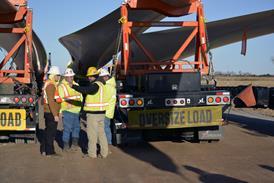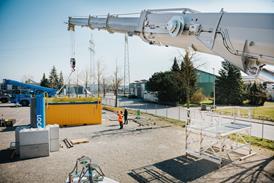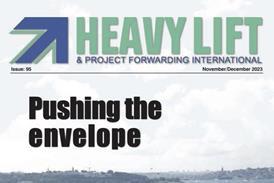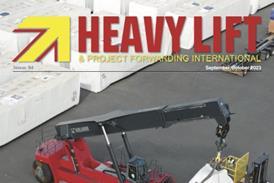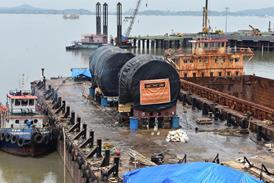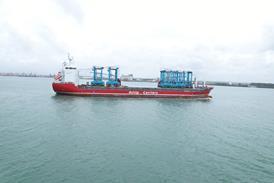October 2 - Last week saw two flag states raise concerns about container weighing proposals that will almost certainly delay efforts to bring in mandatory regulations, though not stop them altogether.
The two flag states concerned, Panama and Cyprus, said during an IMO meeting that more work needs to be done, although they are not opposed in principle to weight checks. Rather, they want to ensure that all aspects are thoroughly considered before legislation is enacted.
Maritime safety campaigners were dismayed about interventions by the pair, after a working group had reached a compromise on the verification of cargo weights. The work on the concrete proposal has now been deferred to the next meeting of the IMO Working Group in 2013 prompting the TT Club to issue a strongly worded statement.
Following frustrating delays at an IMO session last week, the TT Club is urging all parties to redouble efforts to formulate an acceptable global regulation on container weight verification. The insurer urges all those involved in container operations to prepare already for regulatory change.
As a provider of insurance to the international transport and logistics sector, TT both recognises and supports the ground-swell of opinion in favour of a mandatory verification process and recommends all those involved in container operations to prepare for such regulatory change.
All sides of the argument recognise that weight mis-declaration has been identified in a number of high-profile cases, such as 'MSC Napoli', 'Riverdance' and 'Husky Racer', yet the debate continues for the 50 year-old unit load industry.
Peregrine Storrs-Fox, TT Club's Risk Management Director, commented: "The Club is in a unique position to speak on this issue, insuring not only something in excess of 80 percent of all maritime containers but also with an insurable interest in ports handling around 50 percent of the world's containerised freight. TT also insures hundreds of freight forwarders, consolidators and NVOCs. While the immediate debate is only part of an overall 'cargo integrity' matrix that demands our attention, the Club has noted numerous accidents both at sea and on land, where weight mis-declaration is a material root cause".
The outcome of the International Maritime Organisation's (IMO) 17th Session of the Dangerous Goods, Solid Cargoes and Containers Sub-committee (DSC/17) in London last week was not conclusive in terms of agreeing definitive changes in international law relating to the verification of container weights.
However, TT Club believes that valuable progress was made leading to the recommendation to amend SOLAS (the International Convention for the Safety of Life at Sea) to require that freight containers should not be loaded onboard a ship without a verified weight.
The detail of how this is to be achieved will now be considered by a correspondence group of IMO members, which is tasked with confirming the necessary amendments to SOLAS along with comprehensive guidelines, to be submitted to the next DSC meeting in September next year.
The guidelines will resolve how the revised regulations can be enforced in every containerised situation, including the least sophisticated operations.
Storrs-Fox was part of a delegation at the IMO session. He added: "Further delay in this modest legal change is frustrating, particularly since there was substantial consensus concerning acceptable ways to ensure that weight declarations are accurate. It is, however, valuable that IMO recognised that this is but one of the safety issues raised in the 'Lashing@Sea' report by MARIN, as well as within the existing IMO/ILO/UN ECE initiative to produce a Code of Practice for Packing of Cargo Transport Units (CTUs). The direction seems clear, and the delay will be insubstantial, so we are urging shippers, forwarders, freight consolidators and terminals to start planning for this reality."
The TT Club is committed to continue working with its Members, other marine insurance associations and cargo handling organisations to maintain the positive initiatives already underway to avoid incidents caused by mis-declaration of weight and cargo resulting in claims costs for ship casualties, train derailments, and accidents or injuries on roads and in terminal facilities.


